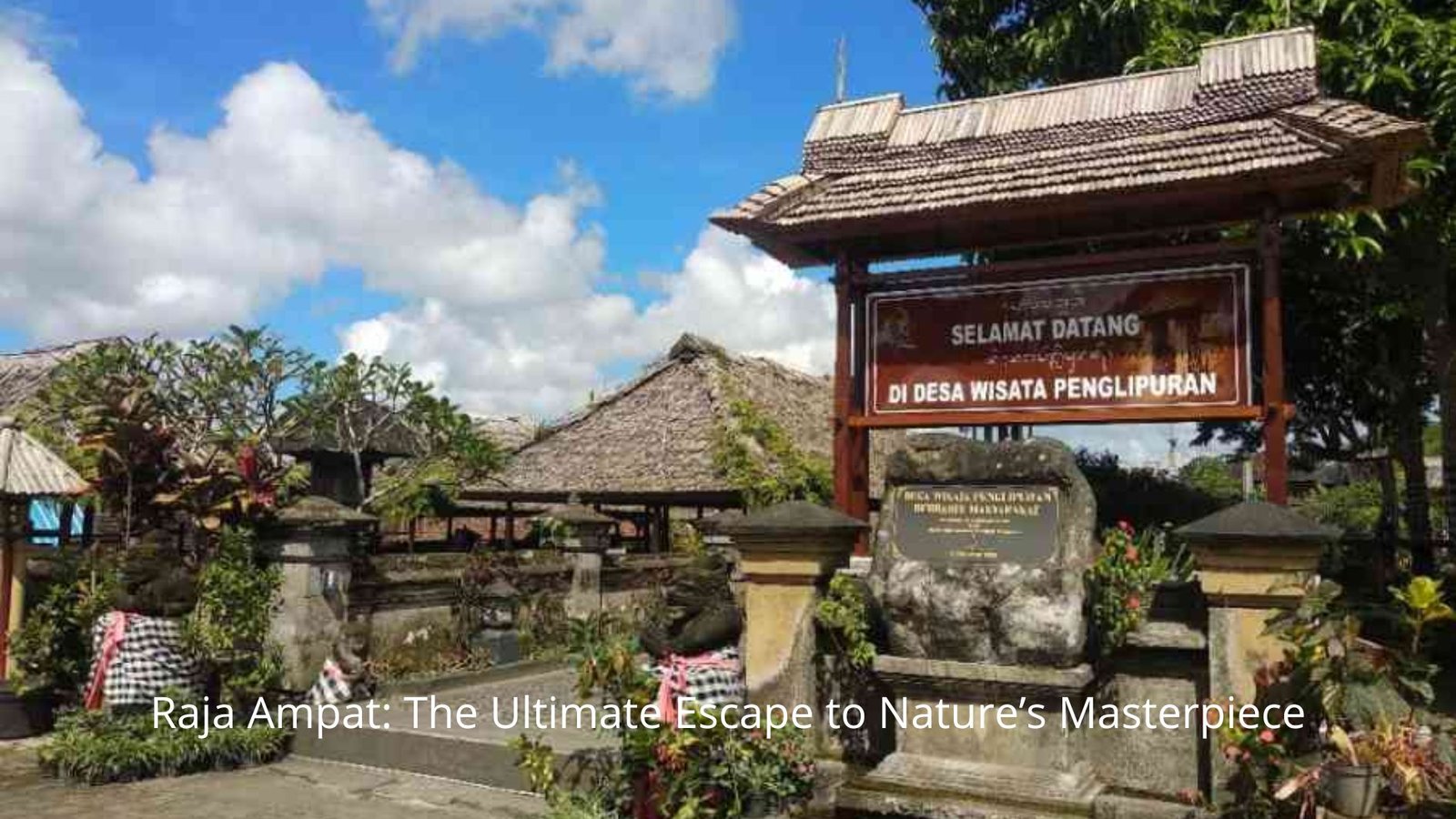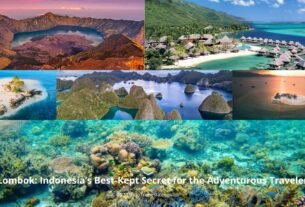Bali, known for its pristine beaches and vibrant culture, hides a gem that’s not just about luxury resorts and bustling nightlife. Desa Wisata Penglipuran, a village tucked away in the cool highlands of Bangli, stands out as one of the cleanest villages in the world. It’s a living testament to how tradition, sustainability, and the environment can blend seamlessly. A perfect spot for travelers seeking to connect with nature while learning about eco-tourism and sustainable living.
A Glimpse into Penglipuran’s Clean and Green Life
When you step into Penglipuran, you’re immediately struck by its spotless streets and carefully maintained surroundings. The village’s cleanliness is not just superficial—it’s deeply ingrained in the way the community lives. Ranked among the cleanest villages globally, Penglipuran’s approach to waste management is a model of efficiency and eco-consciousness. The villagers follow a strict waste segregation system, making compost from organic waste and minimizing plastic use.
This commitment to cleanliness reflects a deep cultural respect for the environment. The residents here understand that the health of their community and their land go hand-in-hand. It’s a vivid reminder that sustainability doesn’t require compromise; it simply asks for a shift in mindset.
Sustainable Living at Its Core
Penglipuran is not only the cleanest village but also one of the most sustainable. This community has thrived by sticking to eco-friendly practices that protect its environment while supporting its local economy. Buildings here are constructed using natural materials like bamboo, making the village blend effortlessly with its lush surroundings. This traditional architectural style is more than aesthetic—it’s an essential part of the ecosystem, reducing the carbon footprint and maintaining the beauty of Bali’s nature.
Sustainable agriculture is another cornerstone of village life. Residents grow their own organic produce, from vegetables to fruits, allowing them to remain self-sufficient while protecting the environment. The village operates on principles that support zero-waste living and green agriculture, two key components of sustainable tourism.
Traditional Life Meets Eco-Tourism
Unlike mass tourism destinations that often feel commercialized and detached from their local culture, Desa Wisata Penglipuran offers an authentic experience that immerses visitors in both tradition and sustainability. The village is known for its community-based tourism, where locals guide visitors through their homes, traditional markets, and even workshops on local crafts like weaving and wood carving.
This model ensures that the benefits of tourism go directly to the villagers, encouraging them to preserve their culture and live sustainably. Visitors not only learn about the local customs, but they also see firsthand how eco-tourism can help preserve traditions while providing economic opportunities.
What You Can Expect from a Visit
Visiting Penglipuran is like stepping into a living history book. The village’s layout follows traditional Balinese patterns, with neatly arranged homes that face a central communal area. Walking through the village feels like a stroll through an open-air museum, but one that is constantly evolving. The temples, traditional houses, and lush gardens are all integrated with the landscape, creating a serene and harmonious environment.
As a visitor, you’ll have the chance to experience Bali’s cultural heart. You can take part in a guided walk where you’ll learn about the Balinese Hindu religion, the banjar system (a community-based governance structure), and the unique architecture that defines the village. Don’t miss the opportunity to visit the local temple, where you can understand the religious practices that are central to the community’s daily life.
A Model for the Future of Tourism
Penglipuran’s success story isn’t just a beautiful anomaly—it’s a roadmap for how rural communities can lead the way in sustainable tourism. The village’s commitment to eco-tourism isn’t just about reducing environmental impact; it’s about cultural preservation and creating a sustainable future for generations to come. By embracing green practices, organic farming, and waste management, the village is helping Bali stay green while supporting its local economy.
Tourism here isn’t about mass visits or overcrowding. Instead, Penglipuran offers an intimate, immersive experience that encourages respect for local culture and the environment. The village’s way of life is a reflection of a sustainable future that everyone, both locals and tourists alike, can help support.
Why You Should Visit Desa Wisata Penglipuran
Desa Wisata Penglipuran is the perfect destination for anyone who wants to experience Bali beyond the beaches. It’s a place where tradition meets sustainability, offering travelers a chance to disconnect from the fast-paced world and reconnect with nature and culture.
When you visit Penglipuran, you’re not just a tourist—you’re a participant in a living model of sustainable living. You’ll leave with more than just memories; you’ll gain insight into how we can all live in harmony with the environment, no matter where we are in the world.



